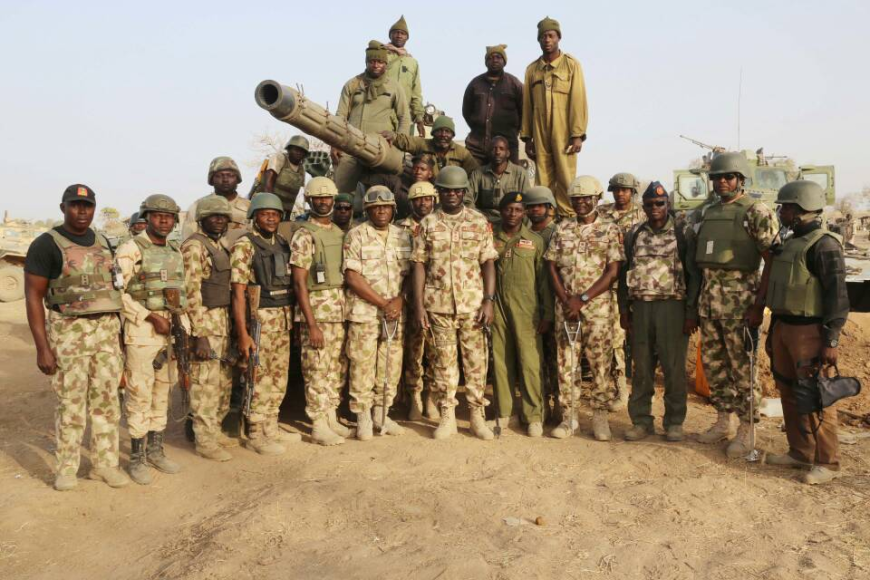Americans are preparing ground for religious war; FFK's warning an in dept analysis
FFK warns the U.S. is stoking religious tension in Nigeria; the blog urges unity, vigilance, and truth against divisive narratives.

There’s something deeply unsettling in the air, and Femi Fani-Kayode (FFK) is calling it out: “The truth is that the Americans, their allies and their local collaborators are carefully and craftily preparing the ground for a religious war in our country and they want us to tear ourselves apart.”
That line alone should make every Nigerian sit up. Whether you agree with him or not, it demands scrutiny, because if he’s even partially right, we may already be walking into a trap. In this piece, I take FFK’s warning seriously — I believe it’s more than mere rhetoric. But I also interrogate it: what evidence exists, where does it succeed, where does it overreach, and how should we respond as a nation under threat of fragmentation.
A. Setting the Stage: Why FFK’s Warning Resonates
1. Religious identity is Nigeria’s most combustible line
Nigeria is a mosaic of faiths. Christianity in the South, Islam in the North, and every local iteration in between. Our religious divisions overlap with ethnic, regional, and economic fault lines. In such a setting, narratives matter. If you control the narrative of who is oppressed and who is the oppressor, you control how people see their neighbors, their government, and their place in the nation.
FFK’s voice echoes in this terrain — he is raising alarm not just about violence, but about narrative warfare. He is saying: don’t let external voices dictate who is victim and who is villain. Don’t let them turn your neighbors into enemies in your eyes.
2. He is pointing at narrative, not denouncing all foreign involvement
This is key: FFK does not claim that no one should care, or that foreign voices should never speak. He accepts that “Christians have been targetted and killed … in huge numbers by Islamist terrorists … over the last 14 years.” But he argues that “just as many Muslims have been targetted and killed by the same terrorists over the same period.”
“The false narrative that they are peddling that only Christians are being killed … gives cause for concern … such a wicked and distorted narrative … will tear us apart … and eventually lead to chaos and carnage … Brother will kill brother.”
He insists on symmetry: victims on all sides, not just one. That symmetrical framing is the heart of his charge: manipulation of narrative to divide.
3. A geopolitical motive — shifting global attention
FFK connects his warning to broader international politics. He believes that the push around “Christian genocide” in Nigeria is partly about drawing attention away from other crises (e.g., Gaza) and punishing Nigeria for its stances:
“They are now talking about Nigeria … because they want to shift the world’s attention away from Gaza … They also want to punish us for taking a bold stand … at the United Nations.”
To him, it’s not just about religion. It’s about influence, leverage, and narrative dominance. He claims that foreign powers want Nigeria on its knees — not by force, but by breaking our internal bonds first.
B. Evidence and Weaknesses: Where the Argument Stands Strong — and Where It Wobbles
1. Strengths: what FFK gets right
(i) Selective narrative bias is real
It is indisputable that global media, think tanks, and foreign lawmakers sometimes stick to simplified narratives of “Christian persecution” in Nigeria. When a high-profile American or international voice echoes the phrase “Christian genocide,” it moves the global conversation. FFK is wise to catch that — narrative amplification is powerful.
(ii) Violence is multidimensional and symmetric
He is correct to emphasize that violence in Nigeria is not unidirectional. Groups like Boko Haram, bandits, and communal militias have attacked communities of all faiths. To frame the crisis as exclusively one-religion suffering is misleading and inflammatory.
(iii) Narrative impacts on policy and perception
When foreign governments and NGOs single out religious lines, it changes how policy is made, how aid flows, and how international pressure is applied. If one community is framed as the only victim, decisions may favor it — and the other side feels invisible or attacked.
2. Weaknesses: where the argument risks overreach
(i) Lack of “smoking gun” evidence
FFK attributes intent: “preparing the ground for a religious war.” But we have limited proof of a coordinated U.S. or Western plan to incite sectarian conflict in Nigeria. He cites rhetorical actions (speeches, resolutions) — but not exposed strategy papers or leaked directives. That gap means critics will accuse him of conspiracy thinking.
(ii) Overemphasis on narrative — underemphasis on structural causes
To lay too much weight on narrative is to underplay the structural drivers of conflict: weak governance, poverty, land disputes, corruption, local elites fueling violence. Even if no foreign plot existed, those internal pressures alone could tear the nation.
(iii) Risk of assuming bad faith in every foreign act
Not every foreign comment or investigation is malicious. Some may stem from genuine human rights concern, diaspora activism, or media oversight. To assume every voice from abroad has ulterior motives may blind us to legitimate external pressure for justice or reform.
(iv) Self-fulfilling prophecy danger
By speaking of “preparation for religious war,” one may cause people to reframe ordinary events as signs of that war. Minor disagreements, localized clashes, political fights might be seen as sectarian battles. The paranoia itself can fan the flames.
C. The Real Danger: Narrative Warfare as a Sword
Let’s imagine what happens if FFK is right — or if enough people believe he is. The danger is not only in bombs and attacks; it is in how people look at one another.
- Mistrust between friends and neighbors. If you begin to suspect your Christian neighbor of “imported narrative agenda,” or your Muslim friend of being manipulated by foreign actors, community cohesion frays.
- Radicalization of identity. People may retreat behind religious identities, seeing religion as the only safe banner in a disordered world.
- Sectarian militias or vigilante groups. When people fear for their faith communities, some may seize arms to defend themselves — even preemptively.
- Institutional discrediting. If citizens believe the government is complicit in foreign narrative aggression, the legitimacy of courts, police, and institutions erodes.
- Foreign leverage solidified. If Nigeria fractures internally under religious terms, external powers gain new entry points to influence fractured regions or communities.
If the war is first fought in minds and narratives, and if we lose that terrain, the second becomes inevitable.
D. What We Should Demand — As Citizens, Not as Victims
It’s easy to accuse; harder to demand clarity, accountability, and unity. Here’s what Nigerians — across religious divides — should insist on:
- Transparent investigations & accountability — trace media funding, expose hidden motives.
- Neutral, cross-faith fact reporting — document all victims, avoid narrative weaponization.
- Interfaith engagement & truth commissions — promote shared understanding, rebuild trust.
- Civic education & media literacy — teach citizens to recognize manipulation.
- Sovereign foreign policy — resist narrative bullying, uphold balanced diplomacy.
- Stronger institutions & governance — address poverty and corruption that fuel division.
E. My Argument: FFK Was Right to Sound the Alarm — But We Must Not Be Paralyzed by It
I believe FFK’s warning is timely and necessary. Whether or not a full-scale “preparation” plan exists, the symptoms of narrative warfare are visible. He is performing a service by forcing us to question. Better to criticize his overreach than to ignore the danger.
However, we should reject paranoia, not vigilance. We must navigate a path that recognizes external influence without surrendering our agency.
Here’s what I’m certain of:
- Narrative control is power — whoever frames the story often wins the moral battle.
- Nigeria is too fragile to risk internal rupture through misframed narratives.
- Unity does not mean silence — we must debate and push back on divisive stories.
- Truth is our best weapon — facts, solidarity, and strong institutions.
FFK’s words should wake us. They should prompt action. They should not divide us further.
Pull Quotes
“They want us to tear ourselves apart.”
“Brother will kill brother.”
“If we are counting Christian bodies, should we not count Muslim ones too?”
Drop your opinion in the comment section.










![Judikay-Man-of-Galilee-[penovas.com].mp3](https://penovas.com/uploads/images/202509/image_430x256_68cc803d1d1d6.png)








































